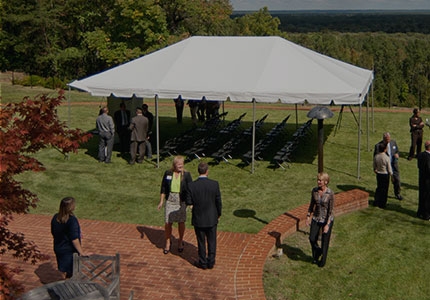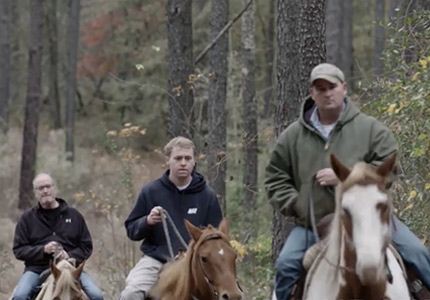Dr. Jacobs Weighs in on the Marijuana Epidemic
With marijuana at record strength and use levels, it’s no time to ease up on it. We checked with local law enforcement. We queried the courts. And we scored an eye-opening consultation with one of the nation’s top experts in the medical field.
Editorial: A historic high
With marijuana at record strength and use levels, it’s no time to ease up on it
We checked with local law enforcement. We queried the courts. And we scored an eye-opening consultation with one of the nation’s top experts in the medical field.
Our considered opinion is that a local politician’s idea to ease up on punishments for marijuana possession is horribly ill-considered, and should, as one law enforcement source suggested it would, “die on the vine.”
But even alarmingly bad ideas, and perhaps especially them, warrant deep reflection.
Augusta Commissioner Bill Fennoy, without much if any discussion and perhaps little due diligence, threw the idea on the table recently after Atlanta passed an ordinance that reduces the penalty for possession of less than an ounce of marijuana to a $75 fine — less than most speeding tickets.
Mr. Fennoy and others who support such measures no doubt mean well, and feel they’re addressing a social injustice of disproportionate punishment among minorities and lower-income users. Yet a court official we talked with said marijuana is an equal-opportunity intoxicant, and another professional noted that less than 1 percent of those incarcerated are in for marijuana — and most doing time for drug crimes are dealers, not just users.
In addition, after our research and feedback from law enforcement, the courts and the medical profession, it’s clear to us that easing up on marijuana would be the opposite of compassion. On the contrary, it would likely encourage more marijuana use — which, for adolescents, can be a life-altering, not just mind-altering, experience.
Moreover, it’s incongruous, and reckless, to airily weaken drug laws when the president just declared opioids to be a national emergency — and when the potency and peril of marijuana has skyrocketed through the decades: The content of its psychoactive ingredient, THC, was about 5 percent prior to 1995; today it can be 20 to 30 percent on average, and in some forms can climb as high as 45 to 85 percent.
This is not your parents’ marijuana.
It may be making its way to your kids: One judge we talked with said first-time users used to be in the teens; now they can be as young as 7.
And it’s those not-yet-fully-developed brains the drug can most harm, says Augusta’s Dr. William Jacobs, a national expert in addiction who has advised officials on addiction and substance abuse at the state and federal levels. He is both is the medical director of Bluff, a sprawling local addiction treatment center, and chief of Addiction Medicine in the Department of Psychiatry and Health Behavior at the Medical College of Georgia at Augusta University.
According to Dr. Jacobs:
- Even assuming a teen is only a “weekend smoker,” use of today’s high-potency marijuana can raise the lifetime risk of a psychotic episode three-fold.
- For teenage daily users, the lifetime risk of a psychotic episode rises to five times.
- Lifetime risk of depression or anxiety can double.
- Among those 16-18, 25 percent of first-time psychotic episodes are related either to today’s high-potency marijuana or a synthetic form.
- While the risk of marijuana addiction is about 1 in 12 among adults, it’s twice that — 1 in 6 — for teens.
Is it a gateway drug? Most people who smoke a marijuana cigarette don’t go on to other drugs, Jacobs acknowledges. “But if you look at patients who get addicted to other drugs, the vast majority of them – their introduction to drug use was through marijuana and alcohol.
“The vast majority of my patients that are in treatment for prescription pills, heroin or other synthetic illicit opioids started on marijuana. And a lot of them have continued to use it.”
Perhaps most ominously, repeated surveys of youths over decades has shown that, as their perception of a drug’s risk goes down, their use of it goes up. Jacobs says the perceived risk of marijuana hit a historic low in 1975, as its use hit a historic high.
We are back at 1975 levels, he says, where the perceived risk of marijuana is way down and its use is up — despite its gargantuan rise in potency over the years.
This is no time to ease up on it, law enforcement and court officials tell us privately.
“It sends the wrong message to our youth, who are among our most vulnerable to the scourge of drugs,” a Richmond County officer told us. “By decriminalizing the use of any kind of drugs, we inadvertently communicate our acceptance to the use of drugs.
“I can tell you from 25 years of working in drug law enforcement, along with research, that marijuana is a ‘gateway drug’.” Almost every drug addict and drug dealer graduated from using/selling marijuana to harder drugs such as crack, methamphetamine and heroin. Marijuana use is how drug users/addicts learn to navigate the drug culture such as how to identify, contact dealers and to conduct transactions. Yes, there are lots of people who use marijuana recreationally and never graduate to harder drugs, but almost all of the addicts started with marijuana.”
It’s vital folks know what these experts know, because decriminalization forces can often be disingenuous in their arguments. Indeed, an experienced court official we queried expressed concern that “hard-working, morally-grounded people in the community are just too busy” carrying the load for others and “would rather stay focused on their families, their businesses, their friends, their charitable work, and their faith” than bone up on the truth about marijuana today.
Without more information, such busy, distracted people, the official fears, “might believe that the vocal proponents of this drivel are ‘unopposed’ or in the majority. That’s how the fabric of a society is slowly worn, torn, and ultimately destroyed.”
For his part, Dr. Jacobs professes to be “agnostic” about the politics of decriminalization.
“But from a medical standpoint, this is a dangerous path to go down,” he says.



